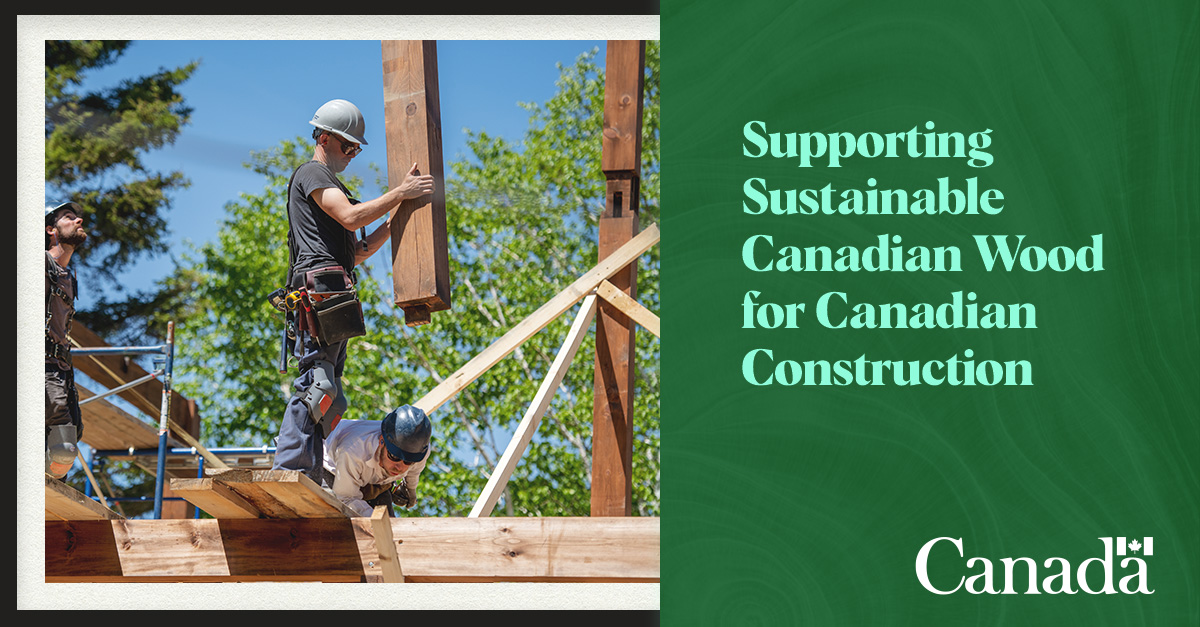As Canada strives to build greener, more climate-resilient homes, the push for innovative, low-carbon construction materials is gaining momentum. New technologies are playing a critical role in this transformation, with significant implications for both the construction and automotive sectors. These advancements are not only reducing carbon emissions but also supporting sustainable job growth within Canada’s supply chain.
In a recent announcement, Francis Scarpaleggia, Member of Parliament for Lac-Saint-Louis, revealed that FPInnovations, a leading research organization, will receive over $2.8 million in federal funding to spearhead three pivotal projects. Acting on behalf of Jonathan Wilkinson, the Minister of Energy and Natural Resources, Scarpaleggia emphasized the importance of these initiatives in promoting the use of Canadian wood in construction and fostering the adoption of zero-emission vehicles in the forestry and commercial transportation industries.
“FPInnovations’ projects are concrete examples of creative and innovative initiatives industry partners can undertake to advance the fight against climate change. Through collaborations like these, we are actively reducing greenhouse gas emissions and creating climate-resilient communities for the benefit of all Canadians,” explained Francis Scarpaleggia, Member of Parliament for Lac-Saint-Louis.
The bulk of the funding—more than $2.5 million—comes from Natural Resources Canada’s (NRCan) Green Construction through Wood (GCWood) program. This investment will enable FPInnovations to collaborate with partners across multiple provinces to gather and analyze market data, conduct research, and test various wood building systems. The ultimate goal is to generate the essential data needed to integrate these wood-based systems into Canadian building codes, paving the way for their widespread use in the construction industry.
“Funding provided by Natural Resources Canada will enable FPInnovations to expand the use of low-carbon construction materials and accelerate zero-emission transportation solutions to market. FPInnovations is proud to be work with the federal government to meet society’s challenges, such as emissions reductions in transportation, increasing the housing supply in Canada and supporting sustainable job creation,” said Stéphane Renou, President and Chief Executive Officer, FPInnovations.
In addition to supporting sustainable construction, FPInnovations will also use this funding to develop resources that promote the use of zero-emission vehicles and clean fuels. By showcasing demonstrations and conducting short operational trials, the organization aims to drive down emissions and modernize Canada’s forestry and commercial transportation sectors. This portion of the funding, amounting to over $212,000, is provided through NRCan’s Zero Emission Vehicle Awareness Initiative (ZEVAI).
“FP Innovations has been a long-standing pillar of applied research in one of Canada’s most important resource-based sectors. Today’s funding announcement highlights the vital partnership between the federal government and FP Innovations in guiding the forestry industry’s ongoing transformation. With the help of this federal contribution, FP Innovations will be able to conduct market research to expand the role of wood in residential and commercial construction. It will also be able to conduct research to adapt ZEV and LEV technology to vehicles used in forestry operations. In both cases, the government and FP Innovations together are helping Canada’s efforts to lower our emissions and meet our GHG targets in the fight against climate change,” expressed the Honourable Jonathan Wilkinson, Minister of Energy and Natural Resources.
These investments are part of a broader effort by the Canadian government to equip the forestry sector with the latest technologies, reduce operational costs, and ensure that the construction industry has access to the low-carbon wood products necessary for building homes across the country. Through programs like GCWood, the government is actively supporting the transition to more sustainable building practices, benefiting both the environment and the economy.

